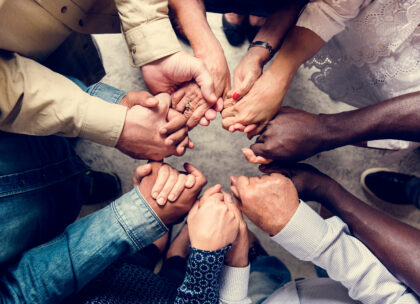One more Bonus Track to address the overflow of questions from our Question Box service a few Sundays ago. Let’s dive in!
Multiple people ask: What are we doing with the Lake Erie Native American Council (LENAC)?
A few years ago, LENAC had a sudden and unexpected need around the winter holidays. At the last minute, an organization that had promised to provide toys for young people let LENAC know they’d be unable to honor that promise. Our congregation partnered with a few other sources to cover the expense and ensure that young people connected with LENAC had gifts.
Since then, we’ve put LENAC in our regular rotation of community partners with which we share our Sunday morning plate offering. The funds we collect essentially cover the cost of two of their cultural skill classes annually. We’ve also offered to provide space for some of LENAC’s courses, and their board is considering whether this would be desirable for them. We could do more to build our relationship with LENAC, if congregants were so inclined. These kinds of connections are as strong as you are willing to forge and sustain them.
Gabriel wonders: How can we know for sure we can trust someone? When trust happens between two people or a group, what is the crucial ingredient?
In my opinion, trust is always a choice. I don’t think we can ever know for sure that someone will be trustworthy in any given moment. I might feel very trusting toward someone one day, and for whatever reason, I may feel less trusting the next day. Maybe other people violated a boundary, and I’m feeling a bit tender about that. It might not be about that individual at all. So, a meaningful spiritual practice for me is to ask: Why do I feel less trusting toward this person right now? And thoughtful introspection may invite me toward a space of deeper trust.
In any case, though, I think vulnerability is a crucial ingredient to trust. If I’m constantly protecting myself, I’ll never allow myself to be in a place of trust. When I talk about intentionally cultivating trust, I also appreciate Brene Brown’s “Anatomy of Trust” acronym: BRAVING, which stands for Boundaries, Reliability, Accountability, Vault, Integrity, Non-judgment, and Generosity. You can do a little personal research to find more about how Dr. Brown defines these elements, but I think all of these ingredients in a relationship—with an individual or a community—make it easier to trust.
And one last question, from Patrice: Has this church or the UU churches united to make a written declaration about how LGBTQ, Black and Brown, Trans congregants will be treated, sheltered and/or referenced by this and all churches under the UU organization if tax exemption or other penalties are threatened by this political system?
Well, first I want to make sure you know about https://www.uua.org/pressroom/press-releases as a place to read any recent press releases from the Unitarian Universalist Association. Second, I want to remind that UU congregations are autonomous in their decision making. This is what we mean by “congregational polity.” The national organization of congregation provides resources and guidance, but each congregation makes its own decisions about pretty much everything.
The UU Congregation of Cleveland has not yet made a written declaration about how we will respond if threatened with punishment for operating in accordance with our values. Personally, I think this is because we don’t feel particularly at risk as a community. I think we either make a lot of assumptions about safety, or we avoid exploring topics that might make us feel powerless.
I wonder how our community would respond if we heard from those who really need to know that the congregation will hold and protect them no matter what. I wonder what would happen if we realized how powerful we actually are, and how necessary our values are in our present time. More on Sunday. Thank you for the questions.
Share this post:
